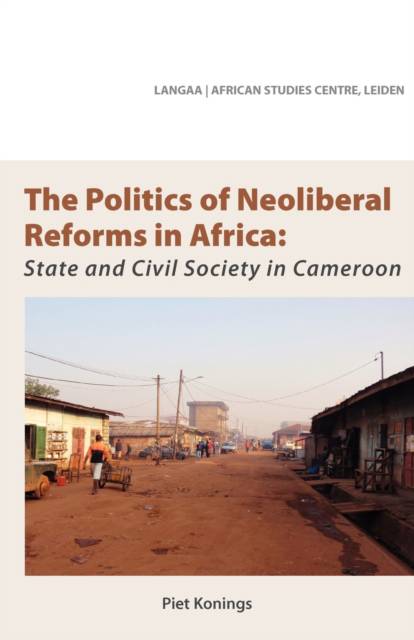
- Afhalen na 1 uur in een winkel met voorraad
- Gratis thuislevering in België vanaf € 30
- Ruim aanbod met 7 miljoen producten
- Afhalen na 1 uur in een winkel met voorraad
- Gratis thuislevering in België vanaf € 30
- Ruim aanbod met 7 miljoen producten
Zoeken
The Politics of Neoliberal Reforms in Africa. State and civil society in Cameroon
State and Civil Society in Cameroon
Piet Konings
Paperback | Engels
€ 98,95
+ 197 punten
Omschrijving
Neoliberalism has become the dominant development agenda in Africa. Faced with a deep economic and political crisis, African governments have been compelled by powerful external agencies, in particular the Bretton Woods institutions and western states, to pursue this agenda as a necessary precondition for the receipt of development aid. What is particularly striking in Africa, however, is that neoliberal experiments there have displayed such remarkable diversity. This may be due not only to substantial differences in historical, economic and political trajectories on the African continent but also, and maybe more importantly, in the degree of resistance internal actors have demonstrated to the neoliberal reforms imposed on them. This book focuses on Cameroon which has had a complex economic and political history and is currently witnessing resistance to the neoliberal experiment by the authoritarian and neopatrimonial state elite and various civil-society groups. It is the culmination of over twenty years of fine and refined research by one of the leading scholars of Cameroon today.
Specificaties
Betrokkenen
- Auteur(s):
- Uitgeverij:
Inhoud
- Aantal bladzijden:
- 346
- Taal:
- Engels
Eigenschappen
- Productcode (EAN):
- 9789956717415
- Verschijningsdatum:
- 26/07/2011
- Uitvoering:
- Paperback
- Formaat:
- Trade paperback (VS)
- Afmetingen:
- 140 mm x 216 mm
- Gewicht:
- 439 g

Alleen bij Standaard Boekhandel
+ 197 punten op je klantenkaart van Standaard Boekhandel
Beoordelingen
We publiceren alleen reviews die voldoen aan de voorwaarden voor reviews. Bekijk onze voorwaarden voor reviews.











